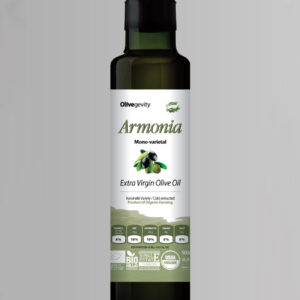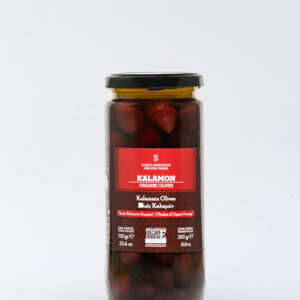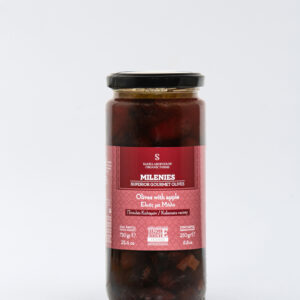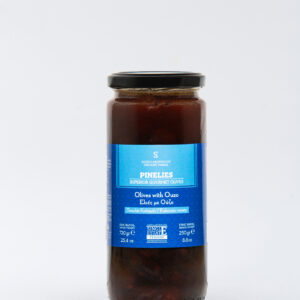
Stefanos N. Kales, MD, MPH, FACP, FACOEM
Profesor of Medicine, Harvard Medical School
Professor & Director, Occupational Medicine Residency
Harvard TH Chan School of Public Health
Division Chief OEM, Cambridge Health Alliance
Olivegevity, LLC
Nestor P. Papakonstantinou
300 Washington Street
Wellesley, MA 02481
24 January 2018
Re: Collaboration with FEEDING AMERICA’S BRAVEST Study
Dear Mr. Papakonstantinou,
I am writing to officialy thank you and acknowledge your company’s contributions of extra virgin olive oil to our US Department of Homeland Security-funded, Medditeranean Diet Intervention Trial in the Indianapolis Fire Department (IFD).
As you know, our study is a Cluster-Randomized Trial of a Mediterranena Diet Nutritional Intervention within the 44 fire stations of the IFD. Of course, olive oil is the most essential element of the Medittteranean Diet and therefore, the “starter” bottles of your company’s excellent olive oil have been extremely helpful.
We look forward to continuing this collaboration with additional donations of olive oil as the study enters “Phase 2” and 22 IFD fire stations assigned originally to the control are now entering the active intervention this month (January 2018). Additionally, we hope to work with you on other workplace-based diet programs such as with police officers in the US.
With appreciation and best regards,
Stefanos N. Kales, MD, MPH, FACP, FACOEM
Harvard School of Public Health, Principal Investigator: Stefanos N. Kales MD, MPH
“Feeding America’s Bravest: Mediterranean Diet-Based Interventions to Change Firefighters’ Eating Habits and Improve Cardiovascular Risk Profiles”
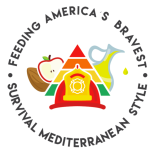 More than one of every three firefighters in the US is obese and heart attacks are the number one line of duty killer- far ahead of burns and dangerous gases in fire smoke. Could one of the solutions be traditional eating patterns, better known as the Mediterranean diet? The US Department of Homeland Security thinks so. They have just awarded a team led by Dr. Stefanos Kales, an occupational medicine physician and Associate Professor at the Harvard TH Chan School of Public Health, with a $ 1.5-million, 3-year, competitive research grant to conduct Mediterranean Diet Nutritional Interventions in a population of over 1,000 Indianapolis firefighters.
More than one of every three firefighters in the US is obese and heart attacks are the number one line of duty killer- far ahead of burns and dangerous gases in fire smoke. Could one of the solutions be traditional eating patterns, better known as the Mediterranean diet? The US Department of Homeland Security thinks so. They have just awarded a team led by Dr. Stefanos Kales, an occupational medicine physician and Associate Professor at the Harvard TH Chan School of Public Health, with a $ 1.5-million, 3-year, competitive research grant to conduct Mediterranean Diet Nutritional Interventions in a population of over 1,000 Indianapolis firefighters.
The goals of the program are to teach firefighters to modify their eating habits using the time- honored and scientifically proven principles of Traditional Mediterranean Diets (e.g. Greek and Italian). Kales emphasizes that this is neither a 8- or 12-week diet, nor a feeding study, but an attempt to bridge knowledge gaps and teach permanent lifestyle changes in the fire service that are supported by mountains of medical evidence. The ultimate purpose of this intervention is to lower firefighters’ risks for cardiovascular disease and cancer by successfully getting more firefighters and their families to adopt and incorporate the healthy eating principles behind the Mediterranean Diet and lifestyle.
The team will randomize all 45 Indianapolis Fire Department stations into two groups. In the first phase of the study 23 firehouses (about 500 members) will receive the intervention including education and healthy shopping incentives, while the other 22 firehouses will not receive the intervention (about 500 members). After one year, the intervention group will try to sustain their lifestyle changes on their own without active help from the researchers, while the other group will receive the same intervention, but for six months (to test a briefer version of the program). Both groups’ dietary habits, weight, blood pressure, cholesterol and other markers will be monitored throughout the 2-year intervention/observation period.
In parallel, the team will conduct a similar demonstration project among several hundred volunteer firefighters in collaboration with the National Volunteer Fire Council.
The team aims to create a comprehensible, approachable and sustainable program that after a successful proof of concept can be disseminated to the rest of the United States fire service and other workplaces and schools in the future. Successful Mediterranean Diet Interventions that can be disseminated and implemented nationally will ultimately reduce cardiovascular morbidity and mortality; obesity-related costs on injuries, workers’ compensation and disability; and costs related to other chronic health conditions; as well as decreasing cancer risks.
In addition to federal funding, the researchers have received endorsements and support commitments from leading US fire service organizations: the International Association of Fire Fighters (union), International Association of Fire Chiefs, the National Volunteer Fire Council, the National Fallen Fire Fighters Foundation and the Fire Protection Research Foundation. The study’s advisory board is directed by Prof. Walter Willett, Chair of Nutrition at the Harvard School of Public Health.

